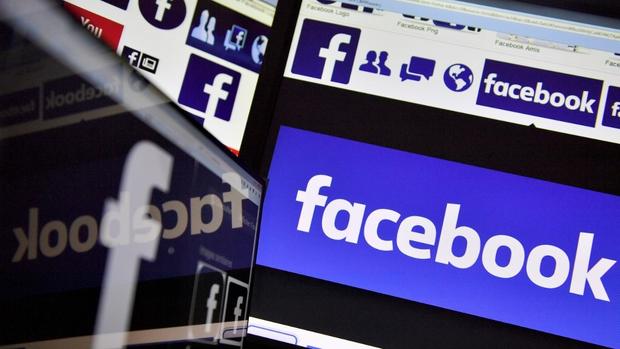 This file photo taken on November 20, 2017 shows logos of US online social media and social networking service Facebook. (LOIC VENANCE / AFP)
This file photo taken on November 20, 2017 shows logos of US online social media and social networking service Facebook. (LOIC VENANCE / AFP)
Facebook Inc for the first time on Thursday disclosed numbers on the prevalence of hate speech on its platform, saying that out of every 10,000 content views in the third quarter, 10 to 11 included hate speech.
Facebook said it took action on 19.2 million pieces of violent and graphic content in the third quarter, up from 15 million in the second. On Instagram, it took action on 4.1 million pieces of violent and graphic content
The world’s largest social media company, under scrutiny over its policing of abuses, particularly around November’s US presidential election, released the estimate in its quarterly content moderation report.
Facebook said it took action on 22.1 million pieces of hate speech content in the third quarter, about 95 percent of which was proactively identified, compared to 22.5 million in the previous quarter.
The company defines “taking action” as removing content, covering it with a warning, disabling accounts, or escalating it to external agencies.
This summer, civil rights groups organized a widespread advertising boycott to try to pressure Facebook to act against hate speech.
ALSO READ: Facebook frustrates advertisers as boycott over hate speech begins
The company agreed to disclose the hate speech metric, calculated by examining a representative sample of content seen on Facebook, and submit itself to an independent audit of its enforcement record.
On a call with reporters, Facebook’s head of safety and integrity Guy Rosen said the audit would be completed “over the course of 2021”.
The Anti-Defamation League, one of the groups behind the boycott, said Facebook’s new metric still lacked sufficient context for a full assessment of its performance.
“We still don’t know from this report exactly how many pieces of content users are flagging to Facebook - whether or not action was taken,” said ADL spokesman Todd Gutnick. That data matters, he said, as “there are many forms of hate speech that are not being removed, even after they’re flagged.”
Rivals Twitter and YouTube, owned by Alphabet Inc's Google, do not disclose comparable prevalence metrics.
Facebook’s Rosen also said that from March 1 to the Nov 3 election, the company removed more than 265,000 pieces of content from Facebook and Instagram in the United States for violating its voter interference policies.
READ MORE: Facebook reports spike in removals of hate speech
In October, Facebook said it was updating its hate speech policy to ban content that denies or distorts the Holocaust, a turnaround from public comments Facebook’s Chief Executive Mark Zuckerberg had made about what should be allowed.
Facebook said it took action on 19.2 million pieces of violent and graphic content in the third quarter, up from 15 million in the second. On Instagram, it took action on 4.1 million pieces of violent and graphic content.
Earlier this week, Zuckerberg and Twitter Inc CEO Jack Dorsey were grilled by Congress on their companies' content moderation practices, from Republican allegations of political bias to decisions about violent speech.
Last week, Reuters reported that Zuckerberg told an all-staff meeting that former Trump White House adviser Steve Bannon had not violated enough of the company’s policies to justify suspension when he urged the beheading of two US officials.
ALSO READ: Facebook's Zuckerberg defends no action on Trump posts
The company has also been criticized in recent months for allowing large Facebook groups sharing false election claims and violent rhetoric to gain traction.
Facebook said its rates for finding rule-breaking content before users reported it were up in most areas due to improvements in artificial intelligence tools and expanding its detection technologies to more languages.
In a blog post, Facebook said the COVID-19 pandemic continued to disrupt its content-review workforce, though some enforcement metrics were returning to pre-pandemic levels.
An open letter from more than 200 Facebook content moderators published on Wednesday accused the company of forcing these workers back to the office and “needlessly risking” lives during the pandemic.
“The facilities meet or exceed the guidance on a safe workspace,” said Facebook’s Rosen.


